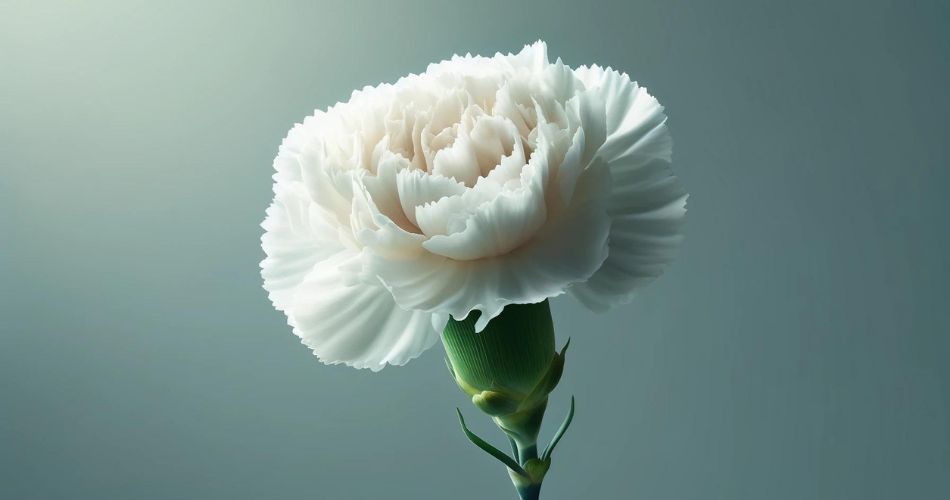Briefly
The white carnation is a powerful symbol representing purity, innocence, and love. In the language of flowers, a white carnation bouquet expresses good luck and divine love, making it an ideal gift for weddings and baptisms. The flower is also a traditional Mother’s Day gift symbolizing a mother’s pure, enduring love. This stems from a Christian legend that carnations first appeared on Earth from the tears of the Virgin Mary.
- Symbolism: Purity, Innocence, Love, Good Luck, Divine Love, Mother’s Love
White Carnation in Dreams
Dreaming of white carnations suggests a period of peace and tranquility is coming your way. White carnations symbolize harmony, happiness, and prosperity. Seeing them in dreams indicates pure feelings, repressed emotions finally finding an outlet, and a need for simplicity and innocence in life. From a psychological perspective, they can symbolize an unconscious desire for purity and spiritual enlightenment.
- Symbolism: Peace, Tranquility, Harmony, Happiness, Prosperity, Repressed Emotions, Purity, Spiritual Enlightenment
See also our Free Dream Interpretation Tool.
White Carnation in Myths and Folklore
In Christian lore, the white carnation is associated with the Virgin Mary, symbolizing her pure love and sorrow. The legend tells that the first carnations bloomed from Mary’s tears as she wept for Jesus on the cross. In Greek mythology, the carnation is tied to the god Zeus, representing divine love. Conversely, in some Asian cultures, white carnations are seen as a symbol of death and are often used in funerals. The dichotomy between Western and Eastern perspectives on white carnation symbolism is a testament to the flower’s rich cultural history.
Another folklore suggests that carrying white carnations can bring luck and protection against negative energies. They are believed to have healing properties and are often used in rituals to ward off evil spirits and promote peace.
- Symbolism: Virgin Mary, Pure Love, Sorrow, Divine Love, Death, Protection, Healing, Warding Off Evil, Peace
White Carnation Spiritual Meanings
In the spiritual realm, white carnations carry the vibration of divine love and healing. They are often used in meditation and spiritual rituals as they help to open the heart chakra and promote feelings of peace and purity. White carnations are also believed to connect with angelic energies and are associated with the capacity to communicate with the spiritual realm. They embody the purity of the divine and represent spiritual enlightenment.
- Symbolism: Divine Love, Healing, Meditation, Opening the Heart Chakra, Peace, Purity, Angelic Energies, Spiritual Communication, Spiritual Enlightenment
White Carnation Tattoo Meaning
A white carnation tattoo holds a deep meaning and is often chosen by those who wish to express purity, love, and spirituality. Carnation tattoos are also a tribute to mothers, symbolizing a mother’s undying love. The white color adds an element of purity and innocence to this symbolism. The white carnation tattoo can also represent healing and protection, making it a symbol of resilience and strength for the wearer.
- Symbolism: Purity, Love, Spirituality, Tribute to Mothers, Resilience, Strength, Healing, Protection

Reviewed by Alexander Lys, M.L., a specialist in the field of symbolism research and dream psychology. A certified participant in numerous psychological seminars and courses, the author of hundreds of articles on psychology, including studies on symbolism in dreams and myths from a scientific perspective.



